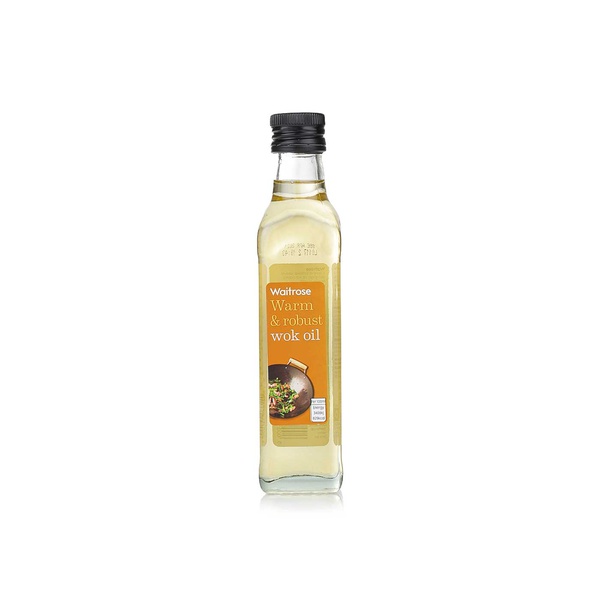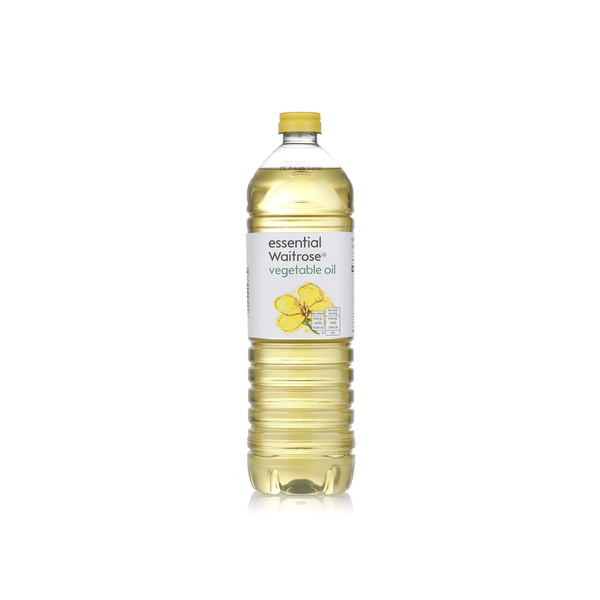The good oil guide

Olive, avocado or coconut? Sizzling or drizzling? With more cooking oils available than ever, here’s what you need to know to choose well for your diet – and your dishes...
There’s such a variety of oils available nowadays, it can feel overwhelming. The good news is that all oils – whether they’re made from fruits, nuts or seeds – can contribute to a healthy lifestyle within a balanced diet. They each offer unique nutritional benefits, and those with a high unsaturated fat content can help you maintain healthier cholesterol levels and protect your heart. Here’s the lowdown on how best to use them.
OLIVE OIL
Central to the Mediterranean diet, olive oil is rich in monounsaturated fatty acids, which experts consider a healthy fat. These fats can lower your ‘bad’ (LDL) cholesterol level and help maintain levels of ‘good’ (HDL) cholesterol. Extra virgin olive oilis made from pure, cold-pressed olives and contains higher levels of polyphenols (a type of antioxidant), which may explain the greater benefits shown for cardiovascular health.
DO use an affordable blended olive oil for everyday cooking, including baking, frying and roasting.
DON’T cook with more expensive extra virgin olive oil. While it’s a misconception that it can’t be used in cooking, the subtle peppery or grassy flavours in extra virgin olive oil will show itself to best advantage in salad dressings or just drizzled over dishes.
Oils – whether they’re made from fruits, nuts or seeds – can contribute to a healthy lifestyle within a balanced diet.”
RAPESEED OIL
Made from the seeds of oilseed rape, this is one of the few cooking oils produced in the UK. Like olive oil, it’s high in monounsaturated fats but has even higher levels of vitamin E. It also boasts the lowest level of saturated fat (7%) of all cooking oils. Extra virgin or cold-pressed rapeseed oil has a particularly delicate, nutty flavour.
DO cook with rapeseed oil as it doesn’t smoke or burn at high temperatures. It’s also great in dressings and marinades.
DON’T use the extra virgin type if you are after a neutral oil.
Extra virgin or cold-pressed rapeseed oil has a particularly delicate, nutty flavour.”
SESAME OIL
Popular in Asian cooking, oil made from sesame seeds comes in both pure and toasted form. It is rich in both monounsaturated and polyunsaturated fats, but also low in saturated fat, making it a heart-healthy option. Sesame oil contains sesamol and sesamin, which are powerful antioxidants. Regular sesame oil from raw seeds has a delicate neutral flavour. Toasted sesame oil is made from roasted seeds, and has a thicker consistency, darker colour and stronger flavour.
DO drizzle toasted sesame oil over stir fries, noodles or roasted vegetables just before serving, or use regular sesame oil in salad dressings or marinades.
DON’T cook delicately flavoured foods in sesame oil as it will overpower them.
Sesame oil contains sesamol and sesamin, which are powerful antioxidants.”
SUNFLOWER OIL
This contains higher levels of monounsaturated and polyunsaturated fats than other oils. These unsaturated fats can help reduce cholesterol levels in the blood, especially when substituted for saturated fats.
DO use in all your everyday cooking, baking and deep frying.
DON’T reuse your sunflower (or indeed any) oil after deep-frying food. Reheating oil to high temperatures not only turns the flavour rancid, but it also causes the formation of potentially harmful chemicals.
Sunflower oil contains higher levels of monounsaturated and polyunsaturated fats than other oils.”
AVOCADO OIL
The green, fleshy part of the fruit is pressed for mild-flavoured avocado oil. About 70% of it comprises monounsaturated fatty acids, making it a heart-healthy option. It’s a good source of vitamin E and very versatile.
DO use in dressings and for drizzling, frying, roasting and baking. Its smoke point is the highest of any cooking oil.
DON’T use with strong ingredients as its mild flavour can get lost.
Avocado oil's smoke point is the highest of any cooking oil.”
WALNUT OIL
This nut oil is rich in the essential omega-3 fatty acid alpha-linolenic acid, which is converted in the body into long-chain omega-3s called EPA and DHA. These contribute to healthy cholesterol levels and normal functioning of the heart. Once opened, it’s best stored in the fridge to preserve the flavour and stop it going rancid.
DO enjoy its delicate walnut flavour in salad dressings or as a dip for bread.
DON’T use this oil for frying or roasting – high temperatures can cause it to break down and turn bitter.
Walnut oil is rich in the essential omega-3 fatty acid alpha-linolenic acid.”
GROUNDNUT OIL
Groundnut (also known as peanut) oil has a gentle, subtly nutty flavour. Almost half of it is comprised of monounsaturated fats, which may help lower ‘bad’ LDL cholesterol. It also contains high levels of vitamin E.
DO use for roasting and stir-frying, as it has a high smoke point.
DON’T forget that oils made from nuts (including walnut and groundnut) are unsuitable for those with nut allergies.
Don't forget that oils made from nuts are unsuitable for those with nut allergies.”
COCONUT OIL
This is solid at room temperature, so can be good for vegan bakes. However, coconut oil is also nearly 90% saturated fat. Claims that coconut oil can aid weight loss or treat conditions such as diabetes and irritable bowel disease are not backed by scientific evidence.
DO use for dairy-free baking.
DON’T choose this if you’re watching your saturated fat intake. Also, that coconut flavour won’t suit all dishes!











